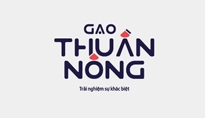

Unpredictable changes
According to forecasts for 2022, the world economy will face many potential risks and unpredictable changes. Geopolitical factors will continue to antagonize and intimidate in an effort to play lead roles. Countries such as the US, China, EU, India, Japan, and UK will play dominant roles. It is also forecast that Taiwan, Ukraine, and Afghanistan will still be at the center of political instability and potential geopolitical tensions. At the same time, the new generation of German leaders and the ones emerging after the next French presidential election will shape new policies on trade, geo-economics, and new trade cooperation with the EU.

The global macroeconomic environment in 2022 predicts four main trends. First, the global economy will continue to suffer deep and long impacts in the third year of the Covid-19 pandemic, and pressure for growth, stability, and social balance will increase for most countries. Second, inflationary pressure will increase after many rescue and support packages. Upto the present time, the inflation rate in some major economies such as the US is 5.4%, and the UK at 4.2%.
Third, it is likely that China, the world's largest market, will not show signs of opening to travel. Especially, when China is focussed on a zero Covid policy to prevent the spread of the disease. Fourth, countries will be forced to pilot the opening of borders to focus on economic recovery, especially in industries that are greatly affected such as tourism, hospitality and hotels.
As a result, countries and business communities will face many challenges. There is likely to be huge production delays due to supply chain disruptions on a regional and global scale. Along with this, businesses will be forced to go through the digitization process because the methods of consumption, production, supply, and interaction have changed due to the impact of the Covid-19 pandemic worldwide. Especially in coming time, the consumers will limit shopping, go to restaurants less, travel less, and have less entertainment, which will reduce revenue of many businesses. If the pandemic situation remains so complicated, it will continue to negatively affect businesses due to labor shortage as well.
New trends
Almost all businesses in Singapore have invested heavily in digitization, including developing digital capabilities for business systems and digitizing the supply chains. Skills training has been deployed on a large scale by Singapore businesses to effectively resolve the problem of production disruption, supply, and job change during the Covid-19 pandemic for both businesses and employees.
The government in China is encouraging businesses to take advantage of the outbreak of the pandemic to developer and improve the quality of human resources, and promote international competitiveness, instead of focusing on the goal of rapid growth. At the same time, China is also prioritizing environmental, social, and governance issues, which are considered effective measures to adapt better to the new pandemic situation.
Japan is also gradually implementing restructuring of usinesses. Currently, about 70% of Japanese companies olved in overseas operations e restructuring and rethinking their business strategies to avoid global risks in the current covid-19 pandemic conditions. cent published study of top executives by IBM, reveals five enlightening feedback. One, digital transformation has never been about technology, which it is a matter of mindset and readiness. Two, the human factor is the key to success. Three, psychological trauma can destroy a company strategy. Four, some businesses will win, others will fail, but few will go alone. Five, health is the key to sustainability
Vietnam must adapt
Vietnam can learn a lot from the experiences of enterprises of some major economies in the world and to be better able to adapt to challenges. Only then will there be resistance to sudden shocks.
Vietnamese businesses that want to survive need a clear and methodical risk management strategy. Companies need to reshape structure, strategy process, people, and technology, First and foremost, businesses need to pay attention to the health and psychology of workers, help them improve their professional quality, and handle complex problems in the new environment. In addition, companies need to improve product quality to access new and old markets, including the most demanding markets, and proactively source raw materials to promote long-term competitiveness.
At the same time, businesses need to improve the quality of information systems and internet systems to connect with investors and partners through digital platforms to improve work efficiency. Along with production and business, enterprises also need to join hands to protect the environment and show social responsibility. These are important weapons for Vietnamese enterprises to be able to adapt and compete strongly in the future.
Along with so many other countries in the world, Vietnam has experienced severe waves of the Covid-19 pandemic, that has had a drastic effect on the economy. However, businesses in many countries have learnt from their own experiences and found ways to live with the pandemic, and bring back businesses to survive under a new normal state of existence. During periods of recession and severe economic downturns, some businesses can still gain an edge. Crisis situations also produce several temporary changes, some shortterm changes but also some lasting changes.
If businesses want to survive, they need to know how and when to seize opportunities and carry on stronger, by restructuring and adapting to the new situations.
NGUYEN DUC KHUONG

Điện thoại: 0909.140.866
Email: info@irrmanagement.com.vn







